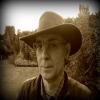It is abduction all the way down

Karl Friston pioneered and developed the single most powerful technique for analysing the results of brain imaging studies and unravelling the patterns of cortical activity and the relationship of different cortical areas to one another. Currently over 90% of papers published in brain imaging use his method (SPM or Statistical Parametric Mapping) and this approach is now finding more diverse applications, for example, in the analysis of EEG and MEG data. His method has revolutionized studies of the human brain and given us profound insights into its operations. None has had as major an influence as Friston on the development of human brain studies in the past twenty-five years.
I have a confession. As a physicist and psychiatrist, I find it difficult to engage with conversations about consciousness. My biggest gripe is that the philosophers and cognitive scientists who tend to pose the questions often assume that the mind is a thing, whose existence can be identified by the attributes it has or the purposes it fulfils.
But in physics, it’s dangerous to assume that things ‘exist’ in any conventional sense. Instead, the deeper question is: what sorts of processes give rise to the notion (or illusion) that something exists?
This perspective on process leads us to an elegant, if rather deflationary, story about why the mind exists. Inference is actually quite close to a theory of everything – including evolution, consciousness, and life itself. It is abduction all the way down.
Now we can see why attractors are so crucial. An attracting state has a low surprise and high evidence. Complex systems therefore fall into familiar, reliable cycles because these processes are necessarily engaged in validating the principle that underpins their own existence. Attractors push systems to fall into predictable states and thereby reinforce the model that the system has generated of its world. A failure of this surprise minimising, self-evidencing, inferential behaviour means the system will decay into surprising, unfamiliar states – until it no longer exists in any meaningful way. Attractors are the product of processes engaging in inference to summon themselves into being. In other words, attractors are the foundation of what it means to be alive.
Applying the same thinking to consciousness suggests that consciousness must also be a process of inference. Conscious processing is about inferring the causes of sensory states, and thereby navigating the world to elude surprises. While natural selection performs inference by selecting among different creatures, consciousness performs inference by selecting among different states of the same creature (in particular, its brain). There is a vast amount of anatomical and physiological evidence in support of this notion. If one regards the brain as a self-evidencing organ of inference, almost every one of its anatomical and physiological aspects seems geared to minimise surprise.
Source: http://akhaart.blogspot.com/2017/06/it-is-abduction-all-way-down.html
Anyone can join.
Anyone can contribute.
Anyone can become informed about their world.
"United We Stand" Click Here To Create Your Personal Citizen Journalist Account Today, Be Sure To Invite Your Friends.
Please Help Support BeforeitsNews by trying our Natural Health Products below!
Order by Phone at 888-809-8385 or online at https://mitocopper.com M - F 9am to 5pm EST
Order by Phone at 866-388-7003 or online at https://www.herbanomic.com M - F 9am to 5pm EST
Order by Phone at 866-388-7003 or online at https://www.herbanomics.com M - F 9am to 5pm EST
Humic & Fulvic Trace Minerals Complex - Nature's most important supplement! Vivid Dreams again!
HNEX HydroNano EXtracellular Water - Improve immune system health and reduce inflammation.
Ultimate Clinical Potency Curcumin - Natural pain relief, reduce inflammation and so much more.
MitoCopper - Bioavailable Copper destroys pathogens and gives you more energy. (See Blood Video)
Oxy Powder - Natural Colon Cleanser! Cleans out toxic buildup with oxygen!
Nascent Iodine - Promotes detoxification, mental focus and thyroid health.
Smart Meter Cover - Reduces Smart Meter radiation by 96%! (See Video).





